New Report Summarizes “Paper to Practice” Outcomes in Nuclear Disarmament Verification
The seventh International Partnership for Nuclear Disarmament Verification (IPNDV) plenary meeting brought 89 representatives from 24 countries, plus the European Union, to Ottawa, Canada from December 3-5, 2019 to complete Phase II and to begin planning for Phase III. The meeting included presentations about practical exercises and technical demonstrations that took the Partnership’s findings “from paper to practice.” Partners focused on technical gaps and policy questions that they will address in Phase III which will officially kick-off in March 2020.
The IPNDV’s Phase II Summary Report: Moving from Paper to Practice in Nuclear Disarmament Verification, released in January 2020, addressed verification of nuclear weapon declarations, verification of reductions, and technologies for verification. A series of papers and technology data sheets that provide additional detail on Phase II activities will be released on the IPNDV website, www.ipndv.org, in the coming weeks.
After the plenary meeting, IPNDV participants visited the Canadian Nuclear Laboratories’ Chalk River Site, the historical home to Canada’s first nuclear reactor. Participants observed demonstrations of experimental techniques for verifying the presence or absence of weapons-grade nuclear materials. These are important tasks for the nuclear disarmament verification process.
The Chalk River demonstration was one of five practical exercises and technology demonstrations conducted during Phase II to advance the Partnership’s ability to identify technologies and procedures that could be applied across all stages of the nuclear weapons dismantlement lifecycle. In addition to the Chalk River demonstration, they included:
- A Nuclear Disarmament Verification (NuDiVe) Exercise, co-hosted by Germany and France, to assess technology options and verification approaches;
- A tabletop exercise in Utrecht, Netherlands which explored the cross-cutting elements within IPNDV’s 14-step dismantlement framework;
- A demonstration of high explosives detection methods, organized by the Netherlands Organization for Applied Scientific Research (TNO); and
- A technology experiment to investigate methods for verifying the presence and/or absence of Special Nuclear Material, sponsored by the Belgian Nuclear Research Centre.
In addition to the exercises and demonstrations, Phase II explored how to characterize other monitoring and verification considerations such as state declarations and treaty limitations. These activities ultimately reinforced the findings of Phase I that multilateral verification of nuclear dismantlement is possible, although it will be challenging and will require a tailored application of verification options—tools, policies, and procedures—to prevent disclosure of proliferation-sensitive safety and security as well as external factors unique to a given country’s nuclear weapons enterprise.
The first meeting of Phase III will be held in Geneva in March 2020. Following the meeting, the IPNDV will host a public event, “Innovations in Nuclear Disarmament Verification: Advancing Technology and Approaches,” from March 18-19. This event, held a few weeks before the 2020 NPT Review Conference, will provide the public, including the diplomatic community, an opportunity to explore the challenges of, and potential solutions for, nuclear disarmament verification through expert panels, poster sessions, and an interactive exhibit.



